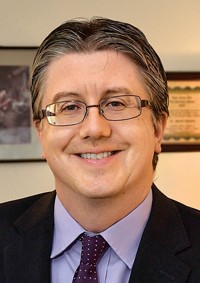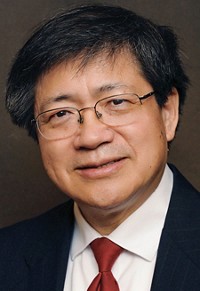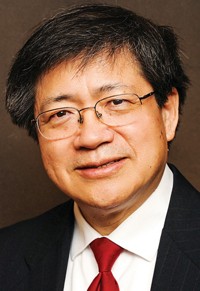Advertisement
Grab your lab coat. Let's get started
Welcome!
Welcome!
Create an account below to get 6 C&EN articles per month, receive newsletters and more - all free.
It seems this is your first time logging in online. Please enter the following information to continue.
As an ACS member you automatically get access to this site. All we need is few more details to create your reading experience.
Not you? Sign in with a different account.
Not you? Sign in with a different account.
ERROR 1
ERROR 1
ERROR 2
ERROR 2
ERROR 2
ERROR 2
ERROR 2
Password and Confirm password must match.
If you have an ACS member number, please enter it here so we can link this account to your membership. (optional)
ERROR 2
ACS values your privacy. By submitting your information, you are gaining access to C&EN and subscribing to our weekly newsletter. We use the information you provide to make your reading experience better, and we will never sell your data to third party members.
Environment
Thematic Programming: From Sustainability To Biotechnology And Beyond!
by Catherine T. Hunt, ACS President
August 13, 2007
| A version of this story appeared in
Volume 85, Issue 33
THE COUNTDOWN to Boston is under way, and thematic programming is breaking new ground. In less than a week, more than 15,000 scientists and technologists from across the chemical enterprise and around the world will come together for the 234th ACS national meeting. On Aug. 19–23, we will come together to do what we seem to do best—talk about the future of science and technology.
Last March in Chicago, we focused on "Sustainability of Energy, Food & Water," and that focus has spilled over into local, regional, and international initiatives. At a meeting in June, the presidents of six major scientific societies, including me, signed a pact to commit ourselves to promoting a global sustainable future (C&EN, July 23, page 10). It was a great thrill to see our technical community coming together so seamlessly.
In Boston, we are talking about health and wellness—more specifically, "Biotechnology for Health & Wellness" (BIOHW). What a fitting topic for Boston in particular, and what a timely topic for the public at large.
The opening presidential session on Sunday is "Material Innovations: From Nanotech to Biotech and Beyond!" Han Shen, the session cochair, will open with a personal perspective on education, collaboration, and material innovations that engender excitement and foster entrepreneurialism.
Our panel will consist of five world-renowned innovative leaders, chemists and engineers alike. Each speaker sets a shining example of speaking up and making our ACS vision a reality: "Improving people's lives through the transforming power of chemistry."
George M. Whitesides, of Harvard University, will share his perspectives on the opportunities for chemists in commercializing new technology, understanding the pros and cons of business models, and transitioning from university to industry.
Chad A. Mirkin, of Northwestern University, says he will discuss some of the first steps "toward realizing the full potential of nanotechnology in the biomedical arena," focusing on discoveries that have led to major new capabilities in biodiagnostics and therapeutics. More specifically, Mirkin says he plans to share how "fundamental studies in novel chemistry and physics of nanomaterials have been translated into new technological innovations that are impacting cancer research, the monitoring and treatment of Alzheimer's disease, and proteomics."
Charles M. Lieber, of Harvard University, says he will share with us how advances in nanoscale materials can "enable unique opportunities at the interface between chemistry, physics, and the life sciences." Lieber is pushing the sensitivity of nanodevices to limits that enable new applications in fundamental chemistry and biophysics research. Future developments likely will "include two-way electronic interfaces between nanowire nanoelectronic devices and living cells and their applications in neuroscience, drug discovery, and hybrid electronic systems," he says.
David A. Tirrell, of California Institute of Technology, will address innovation at the intersection of materials and biological chemistry. Materials chemists are using biological concepts and biological processes in new ways, while the biological sciences community has expanded its engagement with the physical sciences and engineering in order to gain new insights into biological behavior. All this has led to "new developments in biomaterials, protein therapeutics, and proteomic analysis," he says.
Catherine D. Lewis is well aware of the many fields of chemistry that impact the mission of her employer, the National Institutes of Health. As a consequence, NIH supports a wide range of opportunities for chemists to contribute to biomedical research and training. Lewis, of the National Institute of General Medical Sciences, says she will discuss the NIH portfolio and how "new programs at the interfaces of chemistry and biomedical research are emerging to address the challenges of modern biomedical research."
We will conclude this symposium with a panel discussion that I will moderate, wearing both my hats as ACS president and as leader of technology partnerships at Rohm and Haas. You are welcome to review the speakers' abstracts posted on the Web at ACSpresident.org and submit questions for our distinguished panel in advance of the symposium.
Thematic programming continues to break new ground. In addition to the presidential symposium of the same name, there are 20 themed symposia from 12 divisions cosponsored by "Material Innovations: From Nanotech to Biotech and Beyond!" under BIOHW. And there's more—"The Chemistry of Systems Biology" organized by Les McQuire of Novartis, and "Nutritional Genomics" headed up by John Finley of Louisiana State University. These two additional subthemes comprise 30 more symposia involving 11 divisions. You can find all of the details on this exciting program under the BIOHW listing of the meeting program (C&EN, July 30, page 2–TECH).
It will take all of us working together to successfully execute meaningful thematic programming, programming that will not only nucleate ideas, foster community, and accelerate innovation, but also effectively communicate chemistry to a broader audience. Openly discussing these topics as a scientific community will better enable us to speak with one voice to our membership, the media, and the general public, as well as legislators.
Moving forward, the important job of selecting and organizing thematic programming for future national meetings will be the responsibility of the Multidisciplinary Program Planning Group. This team, which includes representatives from all ACS divisions, will be holding its inaugural meeting this year in Boston.
I'm looking forward to seeing you in Boston or visiting with you virtually on the Web, where a video of the symposium will be posted after the event.
We have a lot to do, so let's get started!
Views expressed on this page are those of the author and not necessarily those of ACS.







Join the conversation
Contact the reporter
Submit a Letter to the Editor for publication
Engage with us on Twitter